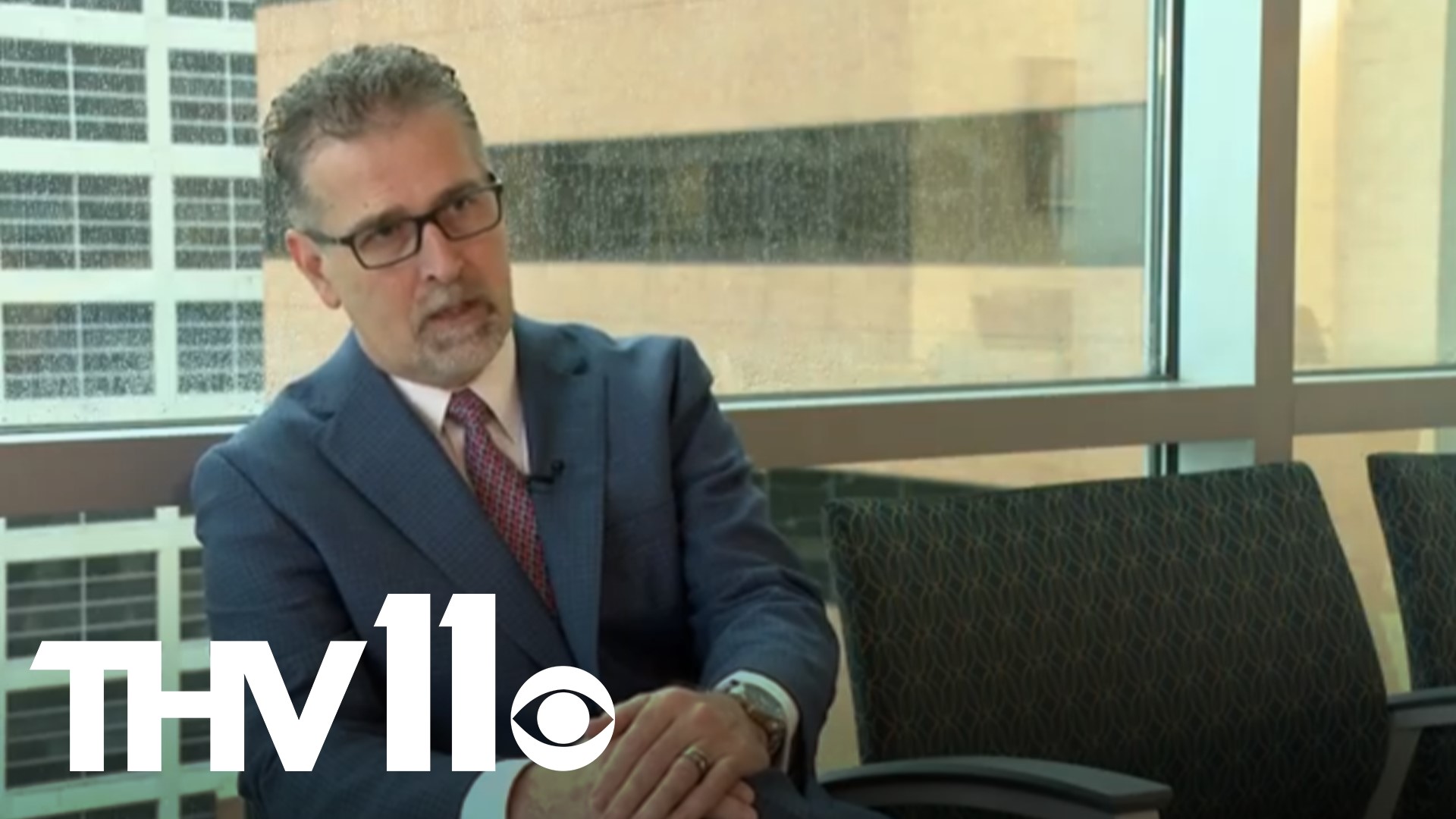LITTLE ROCK, Ark. — The month of March is dedicated to colorectal cancer awareness in the United States, a disease that the Centers for Disease Control & Prevention (CDC) estimates 150,000 Americans will be diagnosed with during the year 2024 alone.
We spoke with an Arkansas native who recently fought and overcame the disease with the help of a skilled team of specialists at the University of Arkansas for Medical Sciences (UAMS).
“We probably wouldn't be talking here today, if I hadn't followed my intuition. I firmly believe that," said Mark Bremer of Little Rock.
Over five years ago, Bremer began noticing some new and troubling symptoms that led him to visit his doctor's office— and today, he credits his intuition with saving his life.
“I went to my doctor, and my doctor said ‘You probably have hemorrhoids. We'll check and do a colonoscopy next year when you're scheduled'. And I said, ‘No, something tells me we need to go ahead and do the colonoscopy," he explained.
Bremer was 49 years old at the time and enjoying life as a husband, father, and successful businessman. He was determined not to ignore his gut feeling that something inside him simply wasn't right.
“I wasn't necessarily surprised. But when I was told I had cancer, it set me back. I couldn't say the word cancer”, Bremer recalled.
After receiving the news, he told his wife right away but waited until he knew a little more before telling his then-18-year-old daughter.
Soon after, his cancer was diagnosed as stage two and he began to look for a hospital that met his conditions.
“What was important to me was finding doctors that I was comfortable with, doctors that had faith, doctors that would work together as a team," he described.
Bremer's team included Dr. Jonathan Laryea, an oncology surgeon, educator, and Division Chief at the UAMS Colon and Rectal Surgery Department.
According to Dr. Laryea, the plan to attack Mark's cancer went well enough that he chose to perform a smaller surgery than initially planned.
“When he had his chemo and radiation upfront, he had a pretty good response. So instead of doing major surgery, we decided to do a smaller surgery because there was just a scar left. And we wanted to make sure that there was no cancer left behind. And so I was able to go in and just remove the scar," he explained.
Dr. Laryea stresses the value of screenings for people who meet the criteria, such as age or family history. He added that while cancers like colorectal are treatable and even preventable, many patients struggle with catching it early on since there are little to no physical symptoms.
This causes patients to learn about their illness when it's further along, making their treatment more complex.
“The important thing is, the majority of patients who have cancer have no symptoms. That is the scary part. Usually, by the time, you know, they start having symptoms, it's a little bit too late, or, you know, it's advanced”, Dr. Laryea explained.
For Mark Bremer, the screening confirmed what he says he already sensed on his own. Now that his journey with cancer is over, he has what many people might consider a surprising perspective on why it happened to him.
“I was given cancer for a reason”, he said. “Part of it is what we're doing today. I know that God was telling me that I need to tell my story, and to help others."
Bremer is more than five years out from his diagnosis but said if he should ever have another gut instinct, he'll be listening to it— and he hopes other people will listen to theirs too.
“The important part is to listen to your body, take healthcare into your own power. Do your research. When you feel something strange, and I know we don't like going to the doctor, we don't like to take the time out of our day, or we just don't like to do it, or we don't want to realize that, you know, there could be something there, the earlier you find something, the better your results are going to be," he described.
The American Cancer Society recommends people who are at an average risk of colorectal cancer to begin screenings at age 45. If you are unsure of your risk category, your primary care provider can help you with an assessment.

